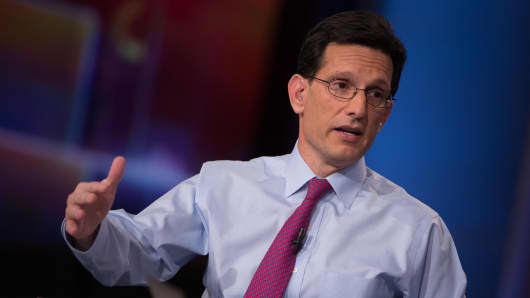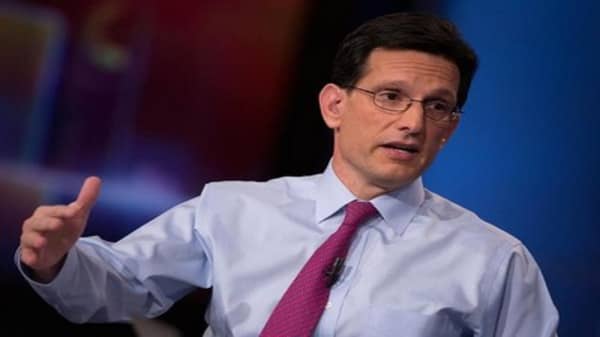At a time when Europe is reeling from terrorist attacks, and the European government and its allies are looking for ways to strengthen their ability to stop terrorists before they strike, I hope the President makes an impassioned plea for Congress to quickly renew critical tools used to track terrorists. Many of these tools are set to expire on June 1.
Visiting with government officials and business leaders the world-over, one common fear I regularly hear is the decline of U.S. global leadership. Since World War II, U.S. leadership has protected the sea lanes, opened avenues of commerce, restrained dictators and despots, kept the peace, and more recently fought terrorists. Tonight, when the President is not just on the American stage, but on a global one, he should not fail to reassure both our allies and our enemies that the U.S. is committed to the global leadership and engagement that is so desperately needed.
Read MoreCantor: Here's what Congress needs to do in 2015
These are just some of the areas worth watching tonight but the bottom-line is this: If the President uses his penultimate State of the Union speech to drive an agenda that sets ideological fault lines instead of practical, achievable goals it is a missed opportunity for his Administration and his legacy. The country wants Washington to be productive in advancing public policy goals that help make America great and middle-class American lives better. There's a path to reaching that objective, let's see if he can find it.
Commentary by Eric Cantor, the former House majority leader, who served as the U.S. representative for Virginia's 7th congressional district from 2001 to 2014. He is currently vice chairman and managing director at Moelis and Co. Follow him on Twitter @EricCantor.




